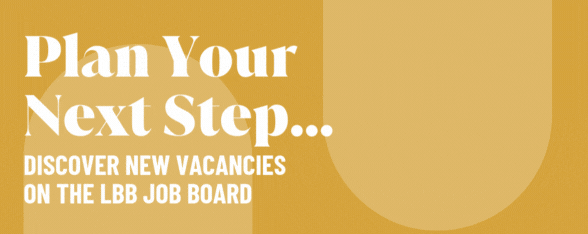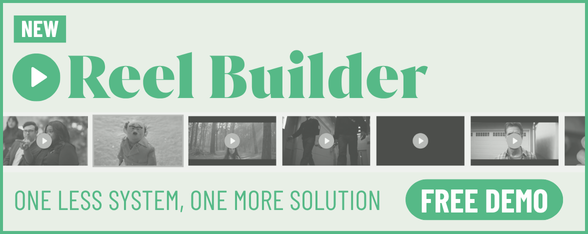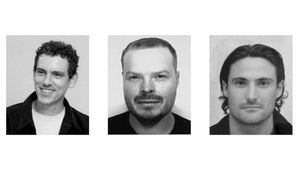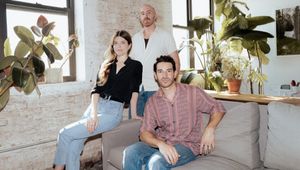
Meet Your Makers: Being Part of the Matchmaking Process with Kathryn Berk
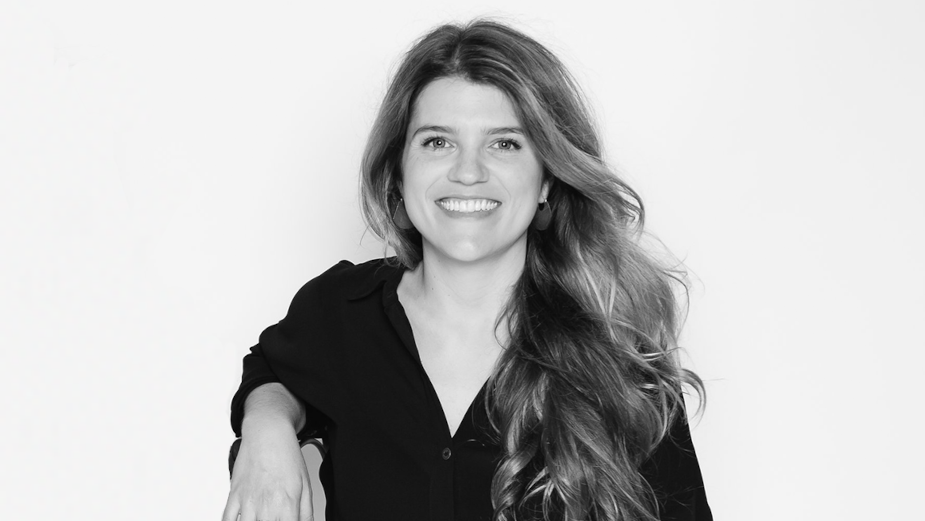
Kathryn Berk is an Emmy Award-winning producer, and executive producer at Curfew, an independent craft-driven production company with capabilities worldwide. After beginning her career in features at Marvel Studios, she transitioned to short form content, and has since produced a variety of projects for brands such as Google, Netflix, Peloton, Mercedes-Benz, Nike, Spotify, and more.
LBB> What first attracted you to production - and has it been an industry you’ve always worked in or did you come to it from another area?
Kathryn> I’ve always loved filmmaking. I was one of those kids that was really into making home movies, I went to USC for Film and TV Production, and I’ve worked in production ever since. Right after college, I started working for Marvel Studios in LA. I had a short period where I dabbled outside production, working in-house at Google. I don't know why I've always been in production - I guess I’m kind of a masochist!
LBB> What was your first role in the production world and how did this experience influence how you think about production and how you grew your career?
Kathryn> Through a series of random run-ins and good luck, my first job was as a VFX PA on Marvel’s The Avengers (the first in the series). It was an incredible experience - I watched the most talented people in the industry make one of the biggest movies of all time. It taught me tremendously, introduced me to my mentor, and launched my career. So much of success is being in the right place at the right time and I’ve been very lucky.
LBB> How did you learn to be a producer?
Kathryn> I started by assisting producers. In Hollywood, when you're the assistant to a feature film producer, you get to see how they work behind the scenes. You receive their emails, you listen in on their calls, and you sit in on meetings. It's very different from a general office role - you watch everything they do and you see behind the curtain. I watched amazing Producers work their magic, and soaked it in. Every company I’ve worked for - Marvel, Google, mssng peces, Curfew - has had talented people that have supported and shown me the way.
Every job I work on I learn how to be a better Producer. I learn from the line producers we work with. Agency producers. Our Reps. My colleagues - Spencer Dennis and Mark Smith. Every job I learn something that I didn’t know before.
LBB> Looking back to the beginning of your career, can you tell us about a production you were involved in where you really had to dig deep and that really helped you to grow as a producer?
Kathryn> I was asked to produce an animated spot for a director I really admired. I was so excited… but the shoot dates coincided with a surgery I was having. I remember talking to the head of the company, saying to her - I can't produce this job because I'm going to be out of pocket for a couple days. And she turned to me and said, okay, well, make the schedule work so that you can be out of pocket for a couple days. It sounds so simple, but it was this major eye opener for me that truly anything is possible in production, as long as you have a plan for it. It was an aha moment where I realised, you're the captain of this. You're the captain of the ship, so you're the one who has to orchestrate all of the pieces and make them come together. And you're also one of the pieces. I think back to this. If I can have a surgery mid-job, we can get through whatever other hurdle needs to happen.
The most successful productions are when everyone is working on the same playing field - the production team, the creative team, the agencies, the account team, the client - they each play a role. Production teams are a crucial part of it.
LBB> A good producer should be able to produce for any medium, from film to events to digital experience. Do you agree or disagree with this statement? Why/why not?
Kathryn> I agree with that statement. Which may be controversial! Being a good producer is being able to make anything happen. It’s triage - focusing on what’s important, communicating, thinking ahead, and getting it done.
And the industry is always changing. You have to learn the latest cameras, formats, apps, tech, trends - there’s no real way to ever master it. It's problem solving, team building and drive that you need - and that works in any medium.
I've produced AR apps, Out of Home campaigns, Pop-Up restaurants… It all starts with an idea. Then you build a budget, timeline, and approach. There are parts that are different, but it's the same process - the common denominator is that you're always making something.
That's why Curfew is so successful now. We’re really a next-gen production company because we are stepping up in a time of rapid change. That’s what’s required of us. Production changes so often and so rapidly, that if you're not able to pivot and be flexible when things change, it's not going to work.
The people that are successful in the industry are people that can take on full budget ranges, from creative and wild ‘run and gun’ shoots, to huge campaigns, and deliver it all at a very high level... You’ve got to be able to adapt and make something that’s engaging, no matter the format.
LBB> What’s your favourite thing about production and why?
Kathryn> My favourite thing is that it's a different job every day. You never get bored. You work on so many different projects in short form and you meet so many people. Every time we have a new bid, I learn about a new product, or campaign, or agency. You're always learning. You're never just sitting there and repeating what you've done before.
LBB> How has production changed since you started your career?
Kathryn> Production has changed a ton since I've started my career. I was in the last class at USC that shot their senior thesis on film. So there's been a huge change, just in technology.
There's also been a really nice shift in production hierarchy. People are valued more. There's a lot of conversation about the toxicity of our industry. There’s a realisation that the way we make our spaces safer is to take responsibility for the way we conduct ourselves in our own offices, and how we treat the people working with us. A lot of people have been excluded from this industry for a long time. We have a long way to go, but I do think the culture is changing.
LBB> And what has stayed the same?
Kathryn> Creativity First is still the same. People want to work on great projects, and an amazing idea never gets old.
LBB> What do you think is the key to being an effective producer - and is it something that’s innate or something that can be learned?
Kathryn> I think there are a lot of pieces that need to come together. You can be taught how to be a producer, though like anything in life, there are probably some people that are more naturally adept at it than others.
The most important part of being a Producer is, at any given moment there are 100 things that are up in the air, and you need to have a good sense of what's important, what is not as important, and always keep the big picture in mind.
The other way to say it is, creatively, sometimes you have to let some things go and you have to know when you have to push for the important things. It's knowing what actually is worth fighting over.
LBB> Which production project from across your career are you most proud of and why?
Kathryn> I did an opioid awareness campaign for the National Safety Council. I worked on it for almost a year in conjunction with some other jobs. It was a really special project in terms of feeling like it had an impact. Getting to meet the families of people who had lost sons and daughters to accidental overdose, seeing people interact with the exhibit, and witnessing them experience the film - it was all really powerful.
LBB> And in terms of recent work, which projects have you found to be particularly exciting or have presented particularly interesting production challenges?
Kathryn> There have been a lot lately.
We built this giant book installation for LeVar Burton and Osmo. We used over 10,000 books.
During the pandemic we co-produced a music video in New York over Zoom with Paul McCartney, working with production teams in London and California, which was pretty epic. It was a really fun challenge. We did some awesome Spotify work in-house there with impressive artists and playlists.
Madeline Clayton did an incredible spot for a non-profit that comes out in a few weeks… I can’t speak much about it yet, but she took the creative to a whole new level and I can’t wait to see it out in the world.
LBB> Producers always have the best stories. What’s the hairiest / most insane situation you’ve found yourself in and how did you work your way out of it?
Kathryn> Haha I could never put them into print! Maybe over a drink sometime.
LBB> What are your personal ambitions or aspirations as a producer?
Kathryn> I want to keep working with people that I respect and admire. Directors, DPs, Creatives, Producers - people that push me and teach me. I know, it’s cheesy. I want to keep learning and keep levelling up.
LBB> As a producer your brain must have a neverending "to do" list. How do you switch off? What do you do to relax?
Kathryn> You don't switch off! I’m constantly on. If you get any good answers to this question please let me know.
LBB> Producers are problem solvers. What personally fuels your curiosity and drive?
Kathryn> I’m genuinely fascinated by people. I love weird people. I love knowing what makes people tick and how people's brains work. I'm a really curious person. And when it comes to problem solving, it's that I need to know what went wrong. How did it go wrong? When did it go wrong? Why did these choices get made - and most importantly - how can we fix it? What are the different ways to fix it?
Being a problem solver is about looking at a problem from different angles. And that relentless examining and re-examining is fuelled by curiosity.
LBB> What advice would you give to people who are interested in becoming a producer?
Kathryn> There's so much advice I could offer. I think the best thing to do is to find Producers that you admire and then study how they operate. At the end of the day, Producing is just completing something and getting it done. There's so many different styles of Producing - if you want to produce you should find the people that mimic your style and then see how they do it. I feel very lucky that throughout my career I've worked for some incredible Producers.
LBB> From your experience what are the ingredients for a successful production?
Kathryn> You have to have a clear vision. I don't think you can have a successful production without knowing what you're trying to accomplish. There has to be creative alignment between all the parties so everyone is clear - “this is what we're doing.” It sounds so simple, but you have to have a plan. You have to have a vision before you can have a path to get there. And then everything else is just figuring out how to make those two come together.
LBB> What’s the key to a successful production-client relationship?
Kathryn> Trust, and a shared vision. If you go into a shoot where there's any doubt that you're not trying to accomplish the same goals, it gets tricky.
LBB> One specifically for EPs: Producers are naturally hands on - they have to be. How do you balance that in the more managerial role of an EP?
Kathryn> An important part of my job is the matchmaking process - pairing the creative with the right director with the right line producer. And if this is successful at the start, you can be a lot more hands off. You have to have the right team in place. It’s trusting the people you're working with and knowing that they have the tools to succeed.






